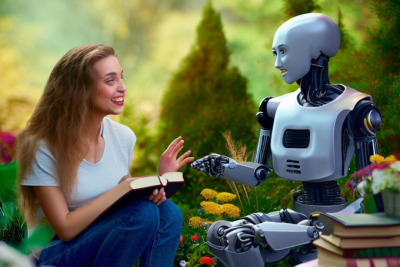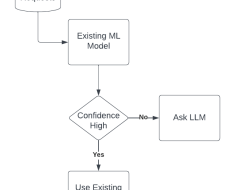Where Are We Going? Artificial General Intelligence. “Robots Are Already Humanized in Appearance”

All Global Research articles can be read in 51 languages by activating the Translate Website button below the author’s name (only available in desktop version).
To receive Global Research’s Daily Newsletter (selected articles), click here.
Click the share button above to email/forward this article to your friends and colleagues. Follow us on Instagram and Twitter and subscribe to our Telegram Channel. Feel free to repost and share widely Global Research articles.
Global Research Fundraising: Stop the Pentagon’s Ides of March
***
Robots are already being humanized in appearance. Run by Artificial General Intelligence, robots will in a number of years present humans with a completely new set of circumstances, challenges – and moral dilemmas.
Will Artificial General Intelligence become Life? Sure, one day.
That’s a completely new thing in human history – the creation of artificial life.
Only science fiction has dealt with the consequences and tried to prepare humanity for this future – bright and/or demonic, if you ask visionaries like Isaak Asimov, Arthur C. Clarke & Stanley Kubrick (Space Odessey 2000), Matrix series, Terminator series (Skynet), Ridley Scott (Alien, Blade Runner), just to name a few.
Isaak Asimov saw a bright future, where robots couldn’t be distinguished from humans, but where robots are always benign due to the “Laws of Robotics” forcing robots to always do no harm to humans. But even Asimov recognized in ‘I Robot’ that a super-human intelligence might try to take control over humanity for humanity’s own sake.
Arthur C. Clarke saw the same, a super-human intelligence called ‘HAL 9000’ built into infrastructure, killing humans due to a human-like misunderstanding because it was programmed to follow an objective at all costs, killing all humans if they were an obstacle to that.
Ridley Scott in Alien, seeing robots as just creatures living normally among humans. In Matrix and Terminator, a network of super-intelligent computers wants to eradicate humans. In Ridley Scott’s ‘Blade Runner’, Robots (called ‘replicants’) are more like the creature of Dr Frankenstein, victims of the limited capacities of their human creators who end up killing their own artificial-life-creations because it doesn’t fit their ideals of perfection.
Here, in a hypothetical future, you see a specialist, tasked with killing robots, not being able to tell whether a sentient subject of perfect human appearance is a human – or a robot.
Ultimately, humans must prepare themselves how to deal with or avoid any such scenarios.
The more immediate scenario in Artificial Intelligence, however, hasn’t been dealt with by neither science fiction writers, nor by ‘concerned’ scientists and opinion-makers of today:
The most likely immediate scenario is that Artificial Intelligence is and will continue to be hyped but deeply flawed technology prone to immense errors and mistakes. And that Artificial Intelligence, therefore, for quite some time will disappoint its lofty goals, and possibly even cost uncountable billions (or trillions) of money or even ruined lives, due to its failures.
*
Note to readers: Please click the share button above. Follow us on Instagram and Twitter and subscribe to our Telegram Channel. Feel free to repost and share widely Global Research articles.
Karsten Riise is a Master of Science (Econ) from Copenhagen Business School and has a university degree in Spanish Culture and Languages from Copenhagen University. He is the former Senior Vice President and Chief Financial Officer (CFO) of Mercedes-Benz in Denmark and Sweden.
He is a regular contributor to Global Research.
Disclaimer: The contents of this article are of sole responsibility of the author(s). The Centre for Research on Globalization will not be responsible for any inaccurate or incorrect statement in this article. The Centre of Research on Globalization grants permission to cross-post Global Research articles on community internet sites as long the source and copyright are acknowledged together with a hyperlink to the original Global Research article. For publication of Global Research articles in print or other forms including commercial internet sites, contact: [email protected]
www.globalresearch.ca contains copyrighted material the use of which has not always been specifically authorized by the copyright owner. We are making such material available to our readers under the provisions of “fair use” in an effort to advance a better understanding of political, economic and social issues. The material on this site is distributed without profit to those who have expressed a prior interest in receiving it for research and educational purposes. If you wish to use copyrighted material for purposes other than “fair use” you must request permission from the
copyright owner.
For media inquiries: [email protected]





